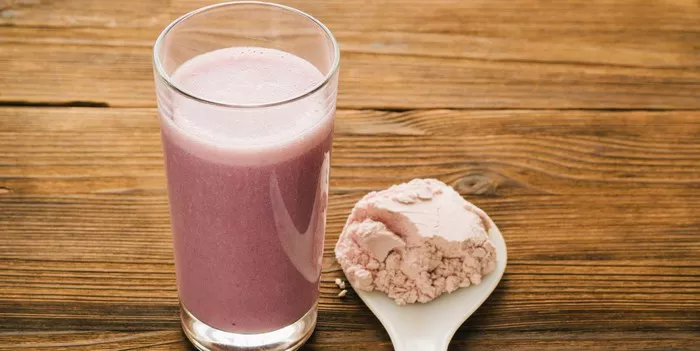Dining out during a weight loss journey often presents a challenge. Many worry about consuming too many calories or losing control and overeating. Balancing enjoyment of food with maintaining healthy eating habits can feel daunting for those trying to shed pounds. Recently, fitness coach Aarja Bedi shared 10 practical tips drawn from her own weight loss experience to help people stay healthy while dining out. These strategies enable you to enjoy meals without guilt and continue progressing toward your weight loss goals.
These tips emphasize not only nutritional balance but also mental adjustments and lifestyle habits, offering a scientific and actionable guide. Whether attending a celebration, a birthday dinner, or simply eating out, mastering these techniques can help you maintain both health and enjoyment.
1. Never Skip Meals Beforehand
Going the entire day hungry before dining out often backfires, leading to overeating later. Instead of starving yourself, try to eat light, balanced meals throughout the day. This helps maintain steady blood sugar levels and prevents extreme hunger, which is a common trigger for binge eating.
Eating properly before a meal keeps your metabolism active and reduces cravings. When you arrive at your meal feeling satiated but not stuffed, you’re more likely to make mindful choices and enjoy your food without guilt.
2. Meet Your Protein Goals Early
Consuming sufficient protein earlier in the day is key. Protein helps keep you full longer and stabilizes your appetite, making it easier to avoid overindulging when you eat out, especially when faced with high-carb or high-fat dishes.
By prioritizing protein intake beforehand, you reduce the risk of scrambling to get enough protein after a meal or resorting to unhealthy options. This helps maintain muscle mass and supports your metabolism during weight loss.
3. Reduce Carbs and Fats at Breakfast
Since dinner out is often rich in carbohydrates and fats, it’s wise to limit these nutrients earlier in the day. A lighter breakfast with fewer carbs and fats gives your body room to accommodate a more indulgent evening meal without exceeding calorie goals.
This approach also helps regulate energy levels and insulin sensitivity throughout the day. By saving some “calorie space” for dinner, you can enjoy your meal more freely while staying on track.
4. Drink Plenty of Water Throughout the Day
Hydration plays a crucial role in digestion and appetite control. Drinking water consistently helps your body process food better and can prevent confusing thirst signals with hunger.
Staying hydrated also supports metabolism and can reduce feelings of bloating or discomfort after eating. Carry a water bottle and aim to drink at least 8 glasses a day, especially on days when you plan to dine out.
5. Walk 10,000 Steps or Exercise Beforehand
Physical activity acts as a buffer for both body and mind. Walking 10,000 steps or fitting in a workout before eating out helps burn extra calories and improves digestion.
Exercise also enhances mood and self-control, making you less likely to overeat out of stress or boredom. It prepares your body to better utilize the nutrients from your meal and supports overall weight loss.
6. Decide Your Treat in Advance
When faced with tempting menus, pick your indulgence ahead of time—whether it’s a dessert, a drink, bread basket, or pasta. Trying to have everything often leads to overeating and regret.
Choosing one treat allows you to enjoy it mindfully without going overboard. This simple decision brings control and satisfaction, helping you savor the meal without guilt.
7. Review the Menu Beforehand if Possible
Checking the menu in advance isn’t about obsessing but avoiding panic ordering or the fear of missing out (FOMO). Knowing what’s available can ease anxiety and help you make healthier choices.
This preparation gives you confidence to stick to your goals, and you can even plan for substitutions or smaller portions. Knowledge empowers you to relax and enjoy the dining experience.
8. Don’t Go to Work Hungry
If you have a busy day before dining out, avoid skipping snacks. Eating a small protein-rich snack or some fruit about an hour before leaving work can prevent excessive hunger that leads to overeating later.
Keeping your hunger in check throughout the day helps maintain steady energy levels and prevents impulsive eating. Smart snacking is a valuable tool for weight management.
9. Eat Mindfully, Not Emotionally
Focus on truly enjoying and savoring your food rather than rushing or eating due to stress or emotions. Chew slowly and appreciate each bite, which enhances satisfaction and helps your body register fullness.
Mindful eating promotes better digestion and reduces the chance of overeating. It encourages a positive relationship with food, making weight loss more sustainable.
10. Return to Normal Habits the Next Day
There’s no need to compensate or punish yourself after dining out. Simply drink plenty of water, eat adequate protein, stay active, and continue your routine the following day.
This resilience and balance are what make a healthy lifestyle sustainable. One indulgent meal won’t undo your progress if you maintain consistency over time.
Conclusion
Challenges are inevitable on any weight loss journey, especially when dining out. However, with thoughtful meal planning, regular exercise, and a balanced mindset, it is entirely possible to avoid the pitfalls of overeating. Fitness coach Aarja Bedi’s 10 tips offer an effective roadmap for maintaining healthy habits in real-life situations.
The key lies in following scientific principles without striving for perfection. By adopting these strategies, weight loss becomes less of a burden and more of a rewarding path toward a healthier, more energetic life. Next time you dine out, try these tips to enjoy your meal while staying on track.
Related Topics































